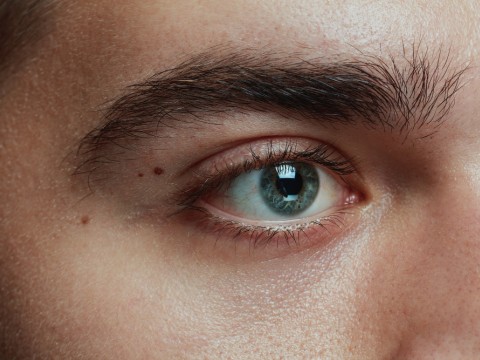Quote of Dünyagöz
What is Corneal Cross-Linking (CCL)?
Corneal Cross-Linking (CCL) is a minimally invasive eye treatment designed to strengthen the cornea, the clear, dome-shaped surface of the eye, to prevent further damage caused by conditions such as keratoconus. The procedure uses ultraviolet (UV) light and a riboflavin (vitamin B2) solution to stimulate the formation of new bonds between collagen fibers in the cornea, making it stiffer and more resistant to distortion. This helps to stabilize the cornea, improving vision and reducing the need for a corneal transplant in severe cases.
When is CCL Treatment Needed?
CCL is primarily used to treat keratoconus, a condition where the cornea thins and bulges into a cone shape, causing blurry or distorted vision. It is also effective for other conditions where the cornea has become weak or unstable. CCL is usually recommended when the cornea is progressively thinning, and traditional corrective lenses (such as glasses or contact lenses) are no longer effective. The procedure can slow or halt the progression of these conditions, offering patients a chance to maintain better vision and avoid more invasive treatments.
Benefits and Recovery
The main benefit of CCL is its ability to stabilize the cornea and prevent further deterioration, which can significantly improve vision and quality of life. After the procedure, patients may experience temporary discomfort, including mild pain, sensitivity to light, and blurred vision. Recovery typically takes a few weeks, during which time patients are advised to avoid certain activities and follow their eye doctor’s aftercare instructions. Most patients notice improvements in vision over several months as the cornea heals and strengthens. Long-term results are generally positive, and many patients experience stable or improved vision after treatment.
- Health Insurance
-
Accommodation
- Online Healthy Life Assistant 9/5
- Post - Experience Follow Up 6 Month
-
Extra Privileges
- Transfer

- Health Insurance
-
Accommodation
- Online Healthy Life Assistant 24/7
- Post - Experience Follow Up 1 Year
-
Extra Privileges
- Pre-Treatment Doctor Consultation
- Transfer

 Private
Private
- Health Insurance
- Healthy Life Butler
- Post - Experience Follow Up 2 Year
- World-Famous Doctor Consultation
-
Extra Privileges
No suitable hotel found for the relevant dates!
* Price varies depending on extra and upgrade selections.
Conditions include keratitis, corneal abrasions, dystrophies, and infections. Additionally, refractive errors such as astigmatism, myopia, and hyperopia can be addressed through corneal treatments.
Yes, non-surgical treatments include medications, eye drops, and specialized contact lenses. These options are often explored before considering surgical interventions.
Procedures such as corneal transplantation (keratoplasty), laser surgeries (PRK, LASIK), and collagen cross-linking are common surgical interventions depending on the specific corneal condition.
Yes, certain corneal treatments, such as LASIK or PRK, are designed to correct refractive errors and reduce or eliminate the need for glasses or contact lenses.
Not everyone may be a suitable candidate for specific treatments. Factors like overall health, age, and the nature of the corneal condition play a role in determining eligibility. Your eye care professional will assess your individual case.




